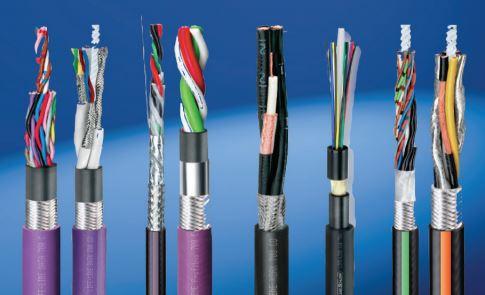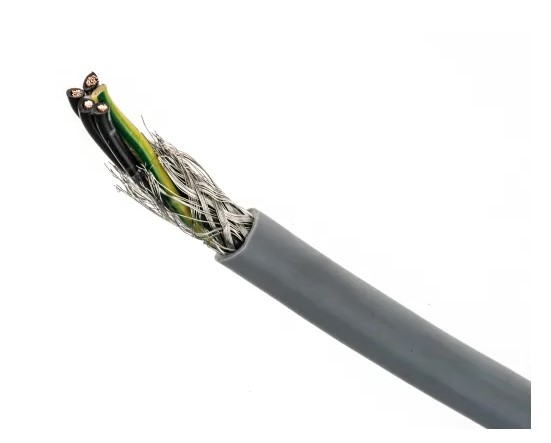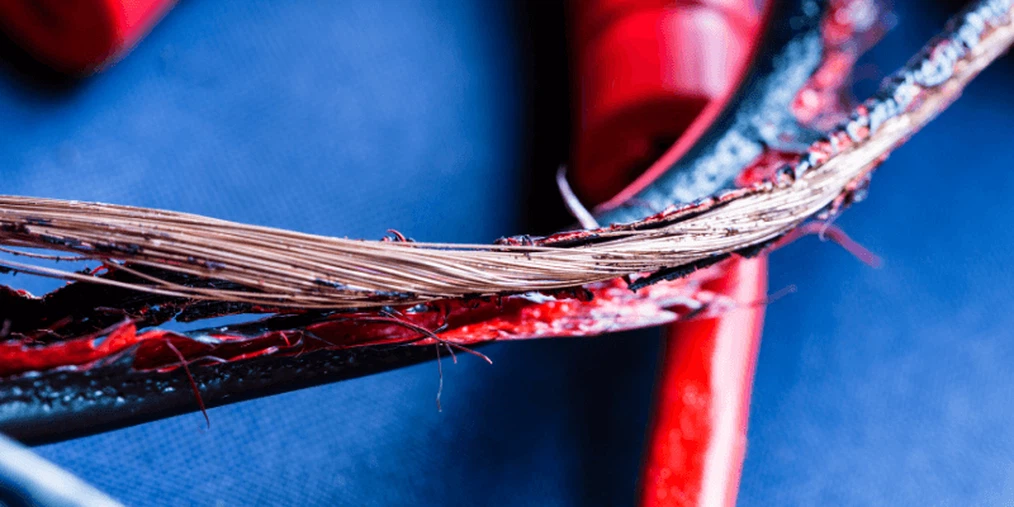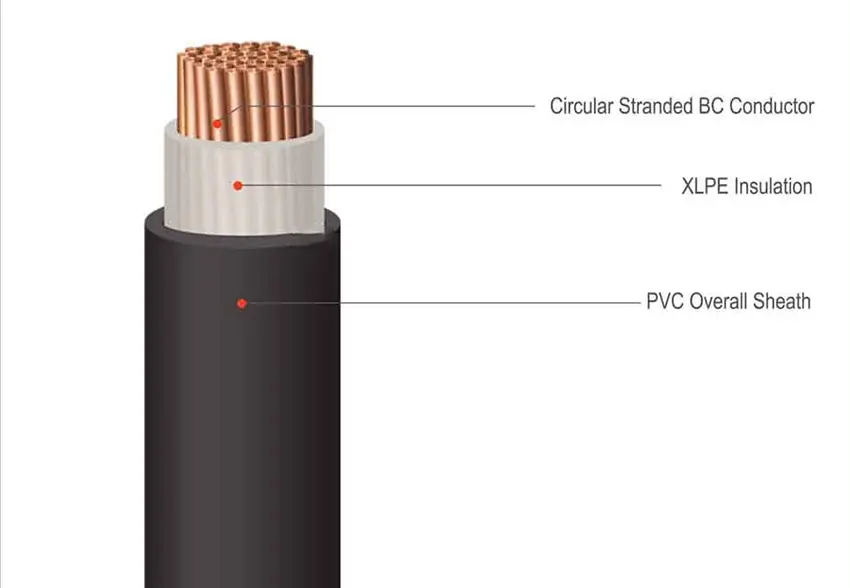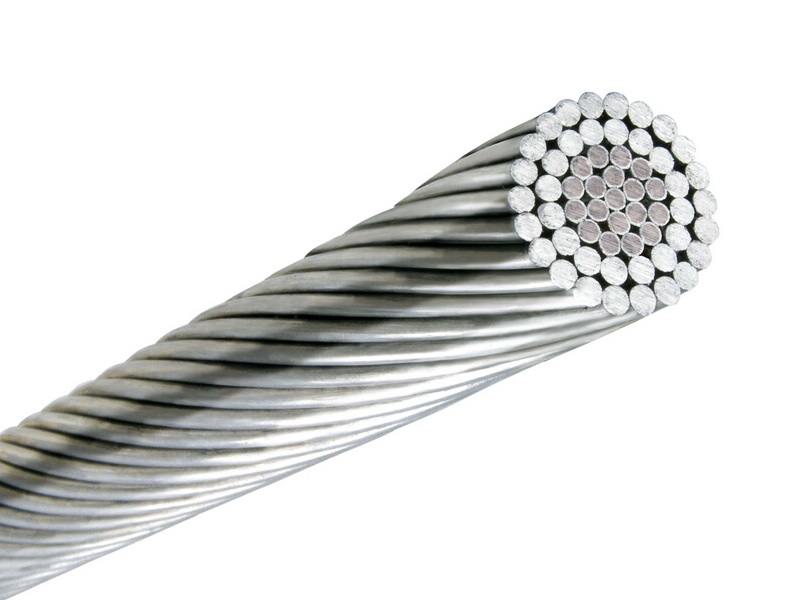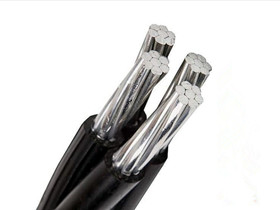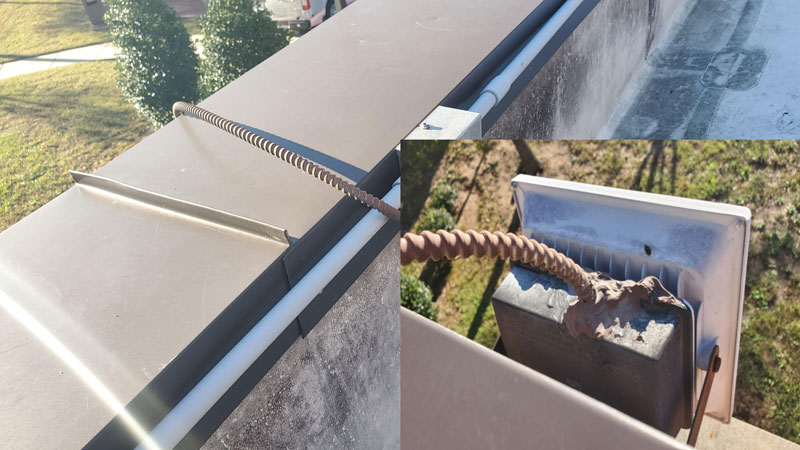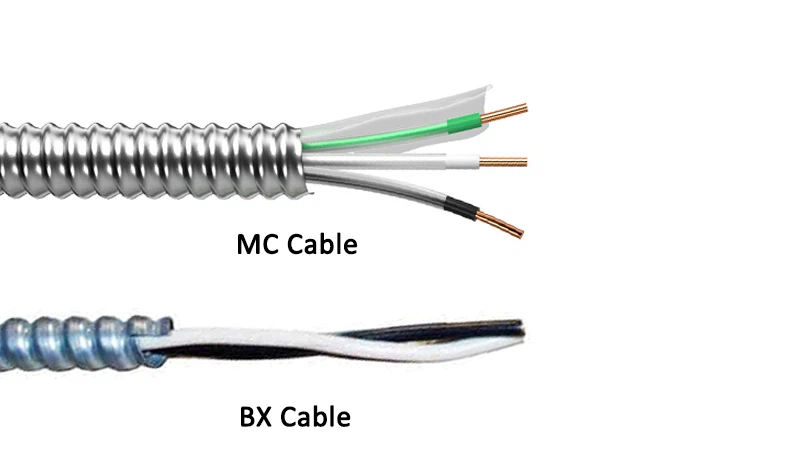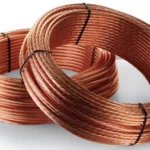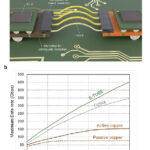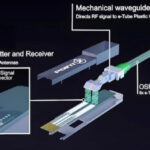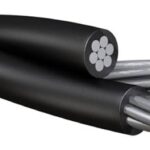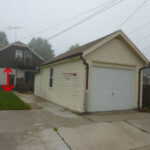- Home
- Products
Power Cables
- Low Voltage Cables - LV
- ——Low Voltage Non-armored Copper Power Cable
- ——Low Voltage Non-armoured Aluminum Power Cable
- ——Low Voltage Steel Tape Armoured Power Cable
- Medium Voltage Cables - MV
- ——Medium Voltage Armored Power Cable
- ——Medium Voltage Non-armored Power Cable
- High Voltage Cables-HV
- Steel Wire Armored Cable (SWA Cable)
- ——Single Core AWA Armoured Cable
- ——2 Core SWA Armoured Cable
- ——3 Core SWA Armoured Cable
- ——4 Core SWA Armoured Cable
- ——5 Core SWA Armoured Cable
- ——SWA Armoured Cable Specifications
- XLPE Insulated Power Cables
- ——XLPE Insulated Single Core Copper Cable
- ——XLPE Insulated 2 Core Copper Cable
- ——XLPE Insulated 3 Core Copper Cable
- ——XLPE Insulated 4 Core Copper Cable
- ——XLPE Insulated 5 Core Copper Cable
- ——XLPE Insulated 3+1 Core Copper Cable
- ——XLPE Insulated 3+2 Core Copper Cable
- Mineral Insulated Cables
- TPS Cable
Renewable Energy Cables
Control & Signal Cables
- Control Cable
- Instrumentation Cable Supplier & Manufacturer
- High-Performance Coaxial Cable Supplier
- VFD Cable
Installation & Building Wire
- Premium Electrical Wire & Cable Supplier
- MC Cable
- NM-B (Non-Metallic Sheathed) Copper Wire
- UF-B Wire
- MTW Wire
Special Cables
- 4/0 Type W Cable – Heavy Duty Portable Power Solutions
- Trunk Trailer ABS Cable
- SO Cable
- Low Smoke Halogen Free Fire Resistant Cable
- Copper Ground Rods
- Copper Clad Steel Antenna Wire
- Marine Power Cords
- Extra High Voltage (EHV) Submarine Power Cables
- Submersible Pump Wire
- Floating cable
- High Temperature Wire
- EV Automotive High Voltage Silicone Rubber Cable
- Braided Stainless Steel Cable
- LC to LC Fiber Patch Cables
- Your Go-To Flexible Cable Supplier & Manufacturer
- Drag Chain Cables
- Silicone Rubber Low Temperature Resistant Cable
Overhead & Aerial Cables
- AAC Conductor
- Aerial Bundled Cable (ABC Cable) Supplier & Manufacturer
- ——NFC 33-209 ABC Cable
- ——0.6/1kV Aerial Bundle Cable
- ——Medium Voltage ABC Cable
- ——Tree Wire Spacer Cable
- ——Aluminum URD Cable
- ——Aluminum XHHW SER SEU RHH RHW-2 XLP USE-2
- Aerial Insulation Line (AIL)
- Bare Stranded Conductors Manufacturer & Supplier
- ——ACSR Conductor
- ——AAAC Conductors
- ——ACAR Conductor
- ——Bare Copper Stranded Conductor
- ——CCS Conductor
- ——ACS Condutcor
- ——Guy Wire
- Overhead Service Drop Cable / Overhead Service Wire
- ——Weatherproof Covered Line Wire
- ——Duplex Overhead Service Drop Cable
- ——Triplex Overhead Service Drop Cable
- ——Quadruplex Overhead Service Drop Cable
- Concentric Service Cable – Reliable Power Distribution Solutions
- ——Aluminum Concentric Service Cable
- ——Copper Concentric Service Cable
- ——Concentric Service Cable with Communication Pilot
- Telephone Drop Cable for Reliable Voice & Data Transmission
- ——PVC Parallel Drop Wires
- ——PE Parallel Drop Wires
- About us
- News
- Contact us
News
Stay updated with the newest developments, industry trends, and expert knowledge about various types of wires and cables. Explore our news section for valuable information and insights.
- Home
- News
What is Continuous Flex Cable? | High-Flex Industrial Cable Explained
Continuous flex cable, also known as high-flex cable or drag chain cable, is a specially designed electrical cable engineered to withstand millions of flexing cycles without failure. These cables are ideal for applications where the cable is constantly moving, bending, or twisting — especially in automated machinery, robotics, and drag chains (energy chains).
Read moreWhat Does THHN Mean in Wire? Understanding THHN Electrical Wire
THHN stands for Thermoplastic High Heat-resistant Nylon-coated. It is one of the most common types of wire used in residential, commercial, and industrial electrical applications in the United States.THHN wire features a thermoplastic insulation, is rated for high heat, and includes a nylon jacket for added protection. This versatile wire is frequently used for conduit and cable tray wiring in dry or damp locations.
Read moreCY Cable – Screened Flexible Control Cable for EMI Protection
CY Cable, also known as CY Screened Cable or CY Control Cable, is a flexible, shielded multi-core cable designed for signal transmission and control applications in environments where electromagnetic interference (EMI) could impact performance. It features a transparent PVC sheath, tinned copper wire braid, and number-coded conductors, making it ideal for machine control, instrumentation, automation systems, and data signal transmission.
Read moreWhat Are Common Items That Cause Conductors to Overheat?
Overheating of conductors is one of the most dangerous issues in any electrical system, potentially leading to insulation failure, equipment damage, or even electrical fires. Understanding what causes conductors to overheat is essential for ensuring safety, efficiency, and compliance with electrical codes.
Read moreXLP vs XLPE: What’s the Difference Between These Two Cable Insulations?
XLP vs XLPE — these two terms are often used interchangeably in the cable industry, but are they really the same? If you’re selecting electrical cables for residential, industrial, or utility applications, understanding the difference between XLP and XLPE insulation is critical.
Read moreACSR Cable Price: A Complete Guide to Costs, Factors & Quotation Tips
If you're searching for the latest ACSR cable price, you're in the right place. ACSR (Aluminum Conductor Steel Reinforced) cable is widely used in overhead power transmission and distribution lines. Pricing varies depending on conductor size, material grade, and order quantity. On average, ACSR cable prices range from $0.40 to $2.50 per meter, but for bulk and export orders, custom quotations are available.
Read moreCopper Wiring vs Aluminum Wiring: Which Is Better for Electrical Installations?
Copper wiring vs aluminum wiring — this has been a long-standing debate in the electrical industry. Whether you're planning a residential, commercial, or industrial project, choosing the right type of conductor material plays a crucial role in safety, performance, and long-term reliability.In this article, we break down the key differences between copper and aluminum wiring, their pros and cons, and when each should be used.
Read moreIs ABC Cable the Right Choice for Overhead Power?
Yes, "ABC cable" refers to an Aerial Bundled Cable. These cables are used for overhead power distribution and are characterized by having multiple insulated phase conductors bundled together, often with a bare neutral conductor, according to Wikipedia. They are also known as Aerial Bundled Conductors (ABC) and have become increasingly popular due to their safety, compact design, and ease of installation compared to traditional bare conductor systems.
Read moreCan MC Cable Be Used Outdoors? A Complete Guide to Outdoor MC Cable Installation
Yes, MC cable can be used outdoors—but it must be rated for exterior and wet-location use, such as jacketed MC cable or MC-HL cable. Standard bare MC cable is not suitable for wet or buried installations.
Read moreBX vs MC Cable: What’s the Difference and Which One Should You Use?
When choosing armored cable for your electrical installation, you’ll often face a common question: BX vs MC cable—what’s the difference? While these terms are sometimes used interchangeably, they refer to two distinct types of armored electrical cables with unique features, code requirements, and ideal use cases.
Read more- Low Voltage Cables – LV
- Medium Voltage Cables – MV
- High Voltage Cables-HV
- Steel Wire Armored Cable (SWA Cable)
- XLPE Insulated Power Cables
- Mineral Insulated Cable (MICC/MI Cable)
- TPS Cable
- Control Cable
- Instrumentation Cable
- Coaxial Cable
- VFD Cable
- Computer Cable
- Electrical Wire
- MC Cable
- NM-B (Non-Metallic Sheathed) Copper Wire
- UF-B Underground Feeder Cable
- MTW Wire
- Prefabricated branch cables
- 4/0 Type W Cable
- Trunk Trailer ABS Cable
- SO Cable
- LSZH Cable
- Copper Ground Rods
- Copper Clad Steel Antenna Wire
- High Temperature Wire
- EV Automotive High Voltage Silicone Rubber Cable
- Submersible Pump Wire
- Floating cable
- LC to LC Fiber Patch Cables
- Flexible Cable
- Drag Chain Cables
- Silicone Rubber Low Temperature Resistant Cable
- All-Aluminum Conductors for Overhead Power Lines
- Aerial Bundled Cable (ABC Cable)
- Aerial Insulation Line (AIL)
- Bare Stranded Conductors
- Wind Farm Cables
- Overhead Service Drop Cable
- Concentric Service Cable
- Telephone Drop Cable
- Solar PV Cable
Recent Posts

